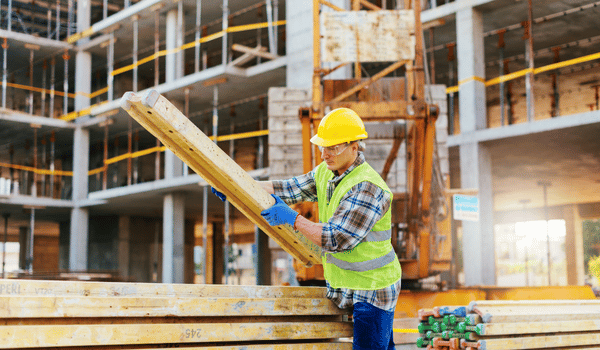
How Construction Materials Testing Helps Prevent Failures
1. Ensuring Structural Integrity
One of the most important roles of Construction material testing is ensuring that the materials will contribute to the overall strength and integrity of the structure. For instance, Concrete testing (such as compressive strength tests) determines whether the concrete mix used will withstand the anticipated loads over time. Similarly, steel testing ensures that the reinforcement bars used in construction can handle the stress of both static and dynamic loads.
Example in Chennai: In high-rise buildings or multi-purpose structures in Chennai, where wind loads and seismic activities may be higher, testing steel reinforcement bars for tensile strength ensures that the building's skeleton will not buckle under extreme conditions.
2. Preventing Material Failures
Many construction failures happen because of material fatigue or corrosion over time. Regular testing helps detect early signs of deterioration, which can be addressed before causing any structural damage.
For example, soil testing can detect moisture levels and soil composition, which are critical for foundations. If soil does not have the right properties for supporting a heavy structure, foundation failure can occur, leading to costly consequences.
Example in Chennai: Due to the city's coastal location, soil in certain areas can be more prone to shifting or erosion, making early testing essential for determining the suitability of foundation materials.
3. Ensuring Compliance with Building Codes and Regulations
Chennai, like other cities, has strict building codes and regulations in place to ensure the safety of structures. Construction materials must meet national and international standards such as those set by the Bureau of Indian Standards (BIS), ISO, and National Accreditation Board for Testing and Calibration Laboratories (NABL). Testing verifies that the materials conform to these standards, ensuring legal compliance and minimizing risks.
Example: If a construction project uses substandard cement or low-quality aggregates that do not meet BIS standards, it can lead to cracks, leaks, or complete failure of the structure. Proper testing will prevent these issues by ensuring the materials meet the required specifications.
4. Preventing Cracks, Leaks, and Foundation Issues
In the humid and rainy environment of Chennai, the risk of cracking in concrete or leakage in water tanks or basements is high. Through water absorption tests and chemical composition analysis, testing ensures that materials will withstand the weather conditions without deteriorating. For instance, testing the water-cement ratio in concrete ensures that the structure will not be prone to cracks or leaks as it ages.
Example in Chennai: Due to the city's high humidity and monsoon seasons, buildings constructed without proper concrete mix testing may suffer from water leakage, corrosion, and foundation problems. Regular testing helps mitigate these risks by confirming the right balance of materials.
5. Identifying Potential Issues Early in the Construction Process
Regular testing during construction allows for early detection of issues that could lead to failures in the long run. For example, aggregate testing can identify poorly graded aggregates that may lead to a weak concrete mix. Early testing prevents the use of unsuitable materials, allowing for the correction of any issues before they escalate into serious problems.
Example: If concrete cubes break or fail during testing, the construction team can immediately adjust the mix design or switch to higher-quality materials to avoid a compromised foundation or structure.
6. Long-Term Durability of Materials
In Chennai's hot and humid climate, the durability of construction materials is paramount. Over time, materials that are not tested may degrade quickly, leading to safety hazards. Testing for corrosion resistance, weathering, and freeze-thaw durability ensures that materials will perform well in the long run.
Example in Chennai: The high saline content in the coastal environment can cause corrosion in metal reinforcements and rusting of steel structures. Regular testing can assess the resistance of these materials to corrosion, ensuring long-lasting durability.
Construction materials testing is an essential step in ensuring the safety, longevity, and performance of buildings and infrastructure in Chennai. By identifying potential issues with materials early on, testing prevents catastrophic failures, reduces repair costs, and ensures compliance with local regulations. From concrete and soil to steel and aggregates, the reliability of materials can make or break a construction project.
For Chennai’s rapidly growing construction sector, adopting rigorous testing standards is key to maintaining the quality and safety of the city's infrastructure. Whether it's for residential buildings, commercial complexes, or large-scale infrastructure projects, construction material testing plays a critical role in building structures that can stand the test of time.

